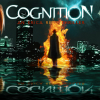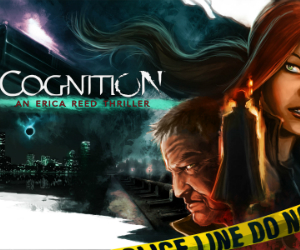 Game: Cognition: An Erica Reed Thriller – Episode 1: The Hangman
Game: Cognition: An Erica Reed Thriller – Episode 1: The Hangman
Developer: Phoenix Online Studios
Publisher: Phoenix Online Studios
Available on: Windows PC only
In a way, purchasing the first episode of Cognition: An Erica Reed Thriller is an investment opportunity for the player, offering a chance to support what looks to be an extremely promising franchise. Funded by Kickstarter, the team at Phoenix Online Studios have endeavoured to make a premium quality title out of a pool of very limited resources. To that end, they have succeeded.
Only, imagine what they can do using the profits accrued by this first episode.
A testament to storytelling, Cognition features an uncomfortably dark narrative that does wonders to establish the titular character, Erica Reed, as a justice seeking femme fatale that avoids all the pitfalls of heroine stereotypes in video games. In the prologue, Erica forces her way onto a case that she is deemed “too close” to. The tutorial sets the tone for the game as an emotionally compromised Erica rushes to save her brother. She arrives too late.
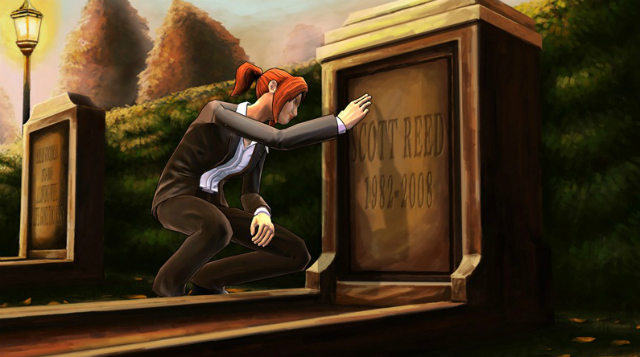
The game then reverts to a standard detective story, enhanced in the presence of Erica’s developing cognitive abilities and the touching moments Erica experiences as she continues to deal with the after effects of her brother’s death.
Unfortunately, the supporting cast is rarely as nuanced as Erica, often being predictable and serving little purpose outside of giving Erica something to respond to. The remarkably acceptable voice acting does help to bring the characters more to life, if only marginally.
Now, I’m going to defy my GodisaGeek.com style guide for a moment to touch on the game’s soundtrack because I believe it is just that incredible. It deserves an early highlight in the review as we trickle down the page to the game’s very few shortcomings. Emotionally piquing, the quasi-industrial background music complements the dreary subject matter in a way rarely rivalled in any medium. Bone chilling at times, the eerie tracks are a testament to the commendable ability of Austin Haynes.
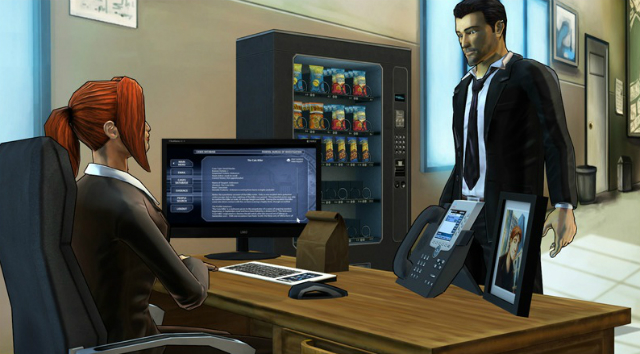
Gameplay holds little in terms of surprises. The UI is standard fair for an adventure title, with the puzzles offering little in terms of thinking. They rarely feel rewarding and, as such, can seem like a waste of time keeping you away from the game’s most enticing feature, the story. The monotony of the puzzles is alleviated to an extent as the episode progresses, mostly as a result of Erica’s Cognitive abilities, the soul feature that differentiates the title from other games in the same genre.
In terms of graphics, this writer has no complaints. The cell shaded character models are beautifully rendered against an equally breathtaking 2D background. Dialogue and action is primarily communicated in graphic novel form, which is fitting considering that the characters look ripped from comics themselves. The cinematics are used to great effect, often conveying Erica’s mental instability at the most potent of times. The whole experience can be emotionally exhausting, but in a good way. The sort of experience that is reminiscent of, let’s say, Dexter.
The game is by no means long, consisting of around 5 hours of straightforward gameplay. Replayability doesn’t do much for the longevity of the game, being that the game is about as linear as they come. If you’ve made it through once and you can recall the steps you took, the experience will lose its appeal through repetition.
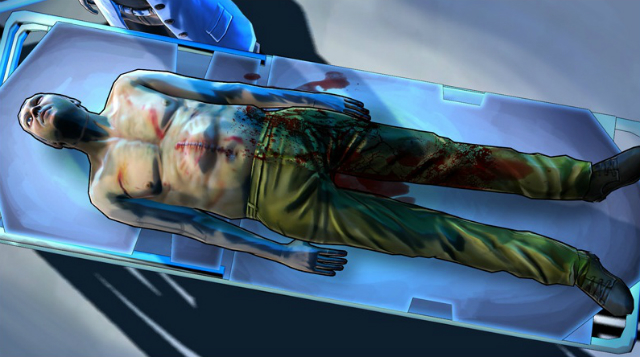
VERDICT: Cognition is a promising franchise and I am intrigued to see the small team grow and improve as future instalments are released. It’s an interesting take on the episodic format, to be sure, and I’m curious to see how it pays off. Ideally, the difficulty will ramp up as new titles are released, since, presumably, players will have a grasp of the adventure game mechanics by that point. If not, devotees of the genre will continue to find the mental stimulation lacking.



